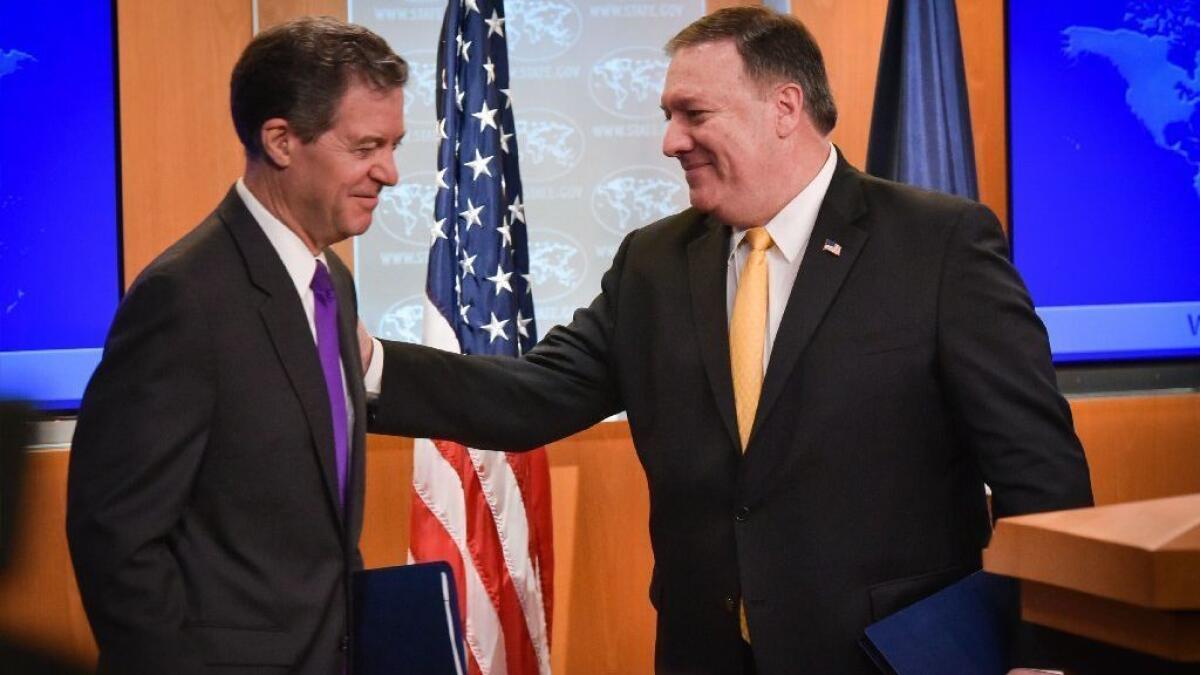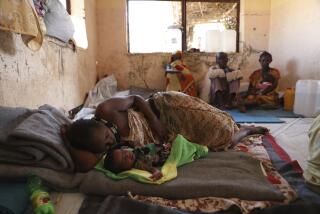State Department report on religious freedom slams Saudi Arabia, China for human rights abuses

U.S. ally Saudi Arabia continued to torture, execute and discriminate against minority Shiite Muslims last year, according to the State Department, but the Trump administration followed the Obama administration and has granted the Sunni-ruled kingdom an exemption from sanctions normally placed on countries with bad records on religious freedom.
Secretary of State Mike Pompeo unveiled the annual report on international religious liberty on Tuesday, the first issued by the Trump administration. He called religious freedom, which is a key concern for a significant portion of President Trump’s political base, the administration’s top priority in human rights.
The issue becomes tricky when key allies or strategic partners such as Saudi Arabia and China restrict faith practices, especially of minority populations.
“Religious freedom deserves to be a front-burner issue,” Pompeo said. “Know that we are working in countries around the world to ensure that religious freedom remains the case, and where it is not, that it becomes so.”
Pompeo and Sam Brownback, the U.S. ambassador-at-large for international religious freedom, announced plans to invite what they called “like-minded” foreign ministers to a July 25-26 conference to discuss religious liberty and persecution.
It will be first ministerial level conference that Pompeo, an evangelical Christian, will host. He said that was intentional to showcase the importance he attaches to the issue.
Brownback would not say if Saudi Arabia will be invited, saying the list of attendees would be made public later, but said he was encouraged by recent Saudi reforms. Saudi Arabia has been granted an exemption from sanctions since at least 2011 for reasons of national security.
The report denounced egregious repression in North Korea, including the killing or disappearance of nearly 200 people last year, and the existence of what Brownback called “gulag” camps that hold between 80,000 and 120,000 “political prisoners,” some jailed for religious reasons.
China continued to imprison members of religious minorities, including Falun Gong and Uighur Muslims, and many die in custody, the report said. Hundreds of thousands of Uighur Muslims were put in “reeducation camps” and are subject to “invasive surveillance,” the report said. Beijing considers many of the Uighurs to be extremists.
China’s treatment of Tibetan Buddhists has also deteriorated and was “very, very troubling,” Brownback said. The report cited a rash of self-immolations by Tibetans to protest the restrictions.
Like Saudi Arabia, China was designated a “country of particular concern.” Unlike Saudi Arabia, China is under sanctions that the administration renewed in December, including a ban on U.S. exports to China of crime control and surveillance equipment.
The continued exemption for Saudi Arabia is “particularly troublesome,” said Sarah Margon, Washington director of Human Rights Watch. Few of the recently announced reforms, she noted, have been enacted.
“Religious freedom is unquestionably an important issue but it is not an uncontroversial one,” Margon said, “especially given this administration’s history of using language that is intolerant and discriminatory.”
At least in public, Trump has minimized U.S. concerns about human rights abuses in his meetings with autocrats, including Philippine President Rodrigo Duterte and Egyptian President Abdel Fattah el-Sisi. State Department programs on women’s rights, reproductive rights and similar issues have been scrapped or marginalized since Trump took office.
Brownback denied that the administration was elevating religious freedom to the exclusion of other human rights concerns.
“This is a foundational human right,” Brownback said. “You do religious freedom and a whole series of better human rights come out of it.”
Brownback said the ethnic cleansing of Muslim Rohingya persists in Myanmar and has worsened. With the monsoon season looming, he said, children are dying of air- and water-borne diseases like diphtheria
The report used generally neutral language to discuss restrictions on non-Orthodox Jews by the Israeli government. It has promised recognition and co-ed praying at the Western Wall but has not acted on it.
As with the State Department’s Human Rights report last month, the report on religious freedom scrubbed the word “occupied” when referring to the Palestinian West Bank and Gaza Strip.
Not surprising, the new report is toughest on several U.S. adversaries.
It slammed Cuba for the harassment and intimidation of the Ladies In White Christian dissident group; Iran, which has imprisoned at least 300 people from religious minorities or accused of “insulting” God; and Venezuela, which has denied or delayed operating permits for several religious groups.
“The state of religious freedom is dire,” Brownback said. “We must move religious freedom forward and defend it in every corner of the world.”
For more on international affairs, follow @TracyKWilkinson on Twitter
More to Read
Start your day right
Sign up for Essential California for news, features and recommendations from the L.A. Times and beyond in your inbox six days a week.
You may occasionally receive promotional content from the Los Angeles Times.







